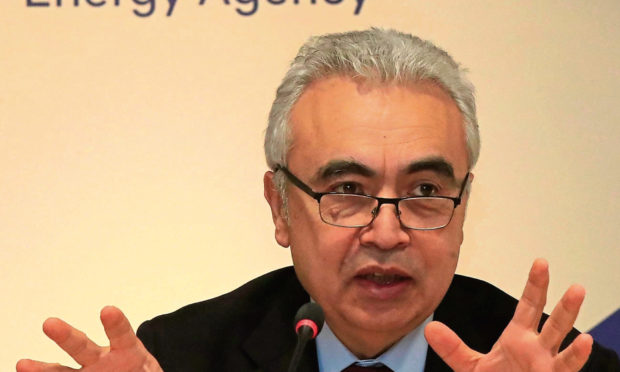International Energy Agency (IEA) chief Fatih Birol said yesterday that an agreement between major oil producers would help to restore “much-needed stability” to the markets.
Mr Birol, IEA’s executive director was tweeting his thoughts as energy ministers from around the world held an emergency meeting – via video-conferencing – to discuss the recent oil price plunge.
It came less than 24 hours after the Opec+ group of producing nations – the 13 member Organisation of the Petroleum Exporting Countries plus 10 other major exporters led by Russia – edged towards a deal to cut production by 10 million barrels per day (bpd), or about 10% of global output.
Standing in the way of a final agreement on Thursday was Mexico, which would accept only one-quarter of its expected contribution to the overall reduction.
Yesterday’s talks between energy ministers from the G20 group plus the European Union achieved a compromise, with the US taking on some of Mexico’s share.
Mr Birol said: “The extreme volatility we are seeing in oil markets is detrimental to the global economy at a time when we can least afford it.
“I am encouraged by the willingness of all these countries to gather around the virtual table – sending a sign of hope and solidarity in these exceptionally difficult times.
“Today’s oil crisis is a systemic shock that threatens global economic and financial stability. It demands a global answer.”
While the deal is expected to deliver a short-term boost to oil prices, which last week crashed to an 18-year low before settling at around $31.5 going into the Easter break, some experts fear it may not be enough to offset the impact of the Covid-19 pandemic.
With a large part of the world’s population stuck in lockdown, unable to drive or fly anywhere, a slump in global demand has created an oil glut – pushing down prices.
A spokesman for energy consultancy Rystad Energy said the pact “will keep the world from physically testing the limits of storage capacity and save prices from falling into a deep abyss”. But he warned: “It will still not restore the desired market balance.”
The 10m bpd cut is in force until the end of June, reducing to 8m bpd from July to the end of the year and then 6m bpd from January 2021 to April 2022.
Nigerian energy minister Timipre Marlin Sylva said he expected oil prices to rebound by about $15 “in the short term”.
Norway has said it will cut its output if the Opec+ deal is implemented.
